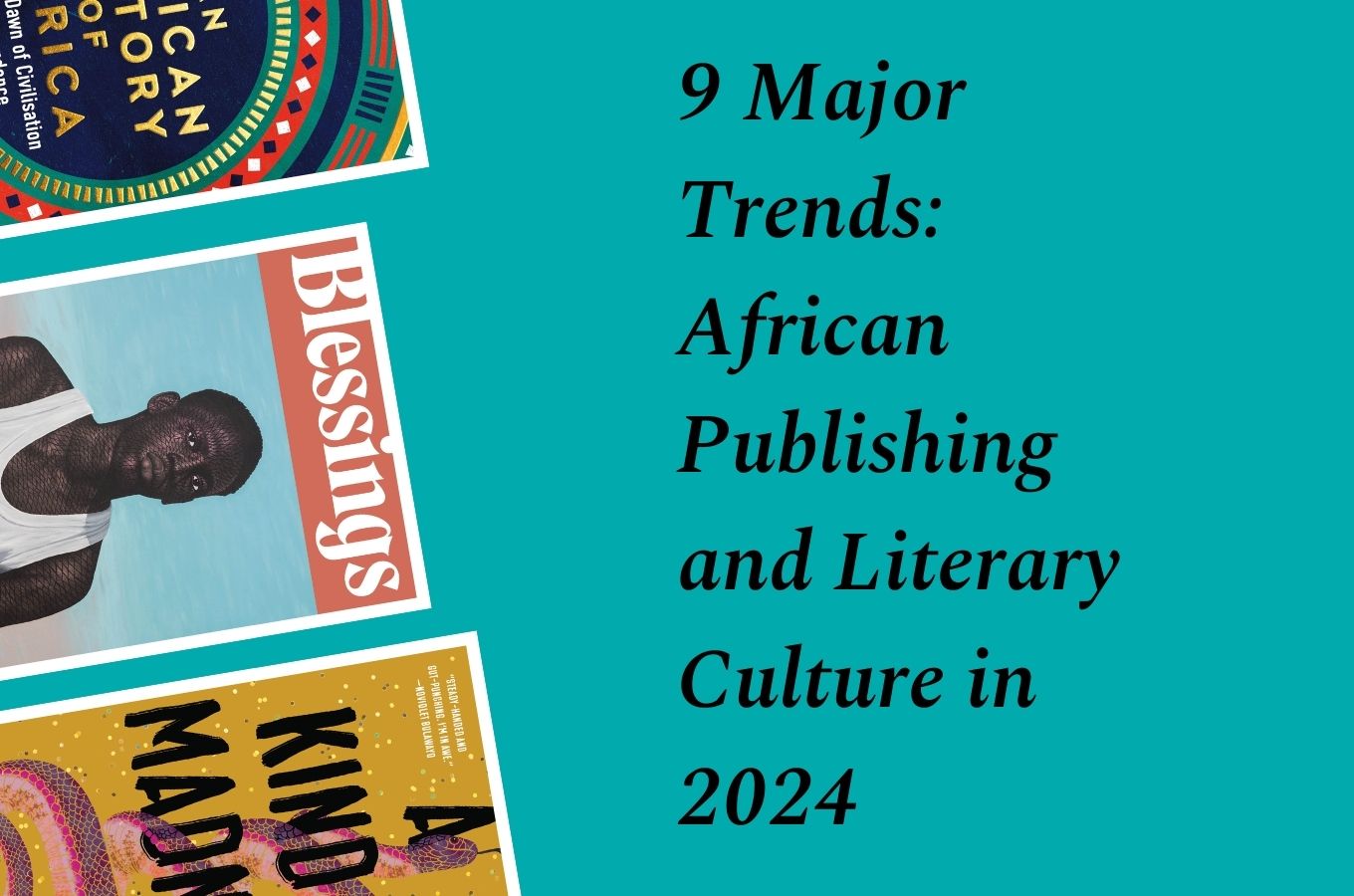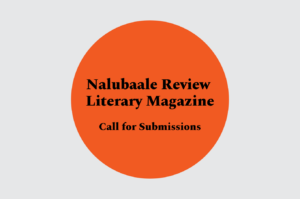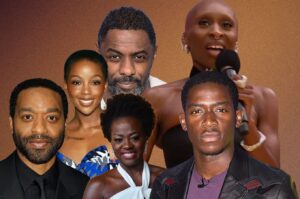
Earlier today, we released our annual 100 Notable African Books of 2024 list. It’s the result of months of compiling, sourcing, and sorting through nearly 300 titles, and, in the process, deepening our knowledge about African writing and literary culture.
Each book on the list tells us something about where African writing is headed—through new voices, daring ideas, and unforgettable characters.
Lists like these do more than celebrate great books. They capture stories about the culture, the market, and the industry. They give us a sense of what’s happening, what’s changing, and what we still need for the future.
As we worked on this year’s list, a few patterns stood out. Here’s what caught our attention.
Women are Killing it!
There were so many amazing stories about women this year—female characters navigating everything from love and survival to ambition and power. We’ve been saying it for a while now: African literature is a space where women authors and women’s stories are thriving, and this year’s list proves it yet again. Scholastique Mukasonga’s Sister Deborah reclaims the story of a healer unfairly vilified in colonial archives, turning it into a powerful act of resistance. Safia Elhillo’s Bright Red Fruit dives deep into the emotional world of a Sudanese woman wrestling with desire and cultural expectations. Tlotlo Tsamaase’s Womb City pushes boundaries with a dystopian tale that mixes speculative fiction and sharp social critique. And then there’s Barbara Boswell’s The Comrade’s Wife and Damilare Kuku’s Only Big Bumbum Matters Tomorrow, which bring fresh perspectives on love, ambition, and survival. Congrats to these women leading the way in African literature.
Speculative Fiction
Speculative fiction is no longer just a fad—it’s a cornerstone of African literature. It has become a growth point for African books, particularly in international markets. Readers are hungry for world-building that takes them beyond their comfort zones, and African writers have mastered the blending of African mythologies and scif-/fantasy conventions to create spectacular fictional worlds and wildly entertaining stories. Speculative fiction is a genre with broad appeal, and it’s allowed African writers to grow truly global readerships pretty quickly.
Books like Faebound by Saara El-Arifi and O.O. Sangoyomi’s Masquerade use fantasy and myth to challenge ideas of power and identity. Anthologies like Egypt + 100 imagine futures inspired by the Tahir square protests, and Pemi Aguda’s Ghostroots that reimagines Lagos as a haunted city layered with ancestral mysteries. The stories are deliciously escapist while asking big, tough questions about life, history and politics.
Spaces as Characters
This year, spaces—cities, forests, deserts, and imagined terrains—played a noticeable role in many books. Cape Town’s water crisis in Alistair Mackay’s The Child mirrors the protagonist’s personal struggles, while Zanzibar’s colonial history and rebellion shape Samahani by Abdelaziz Baraka Sakin. Lagos appears in multiple works, from Water Baby, which focuses on the floating slum of Makoko, to Ghostroots, which reimagines the city as haunted by its histories. Johannesburg is the heart of City of Mine by Niq Mhlongo and Ivan Vladislavić’s The Near North, while Kinshasa is all espionage and intrigue in Barly Baruti and Thierry Bellefroid Chaos in Kinshasa. These books treat spaces as more than backdrops. The authors take meticulous care to make these African spaces come alive and feel present for the reader.
The Year of Poetry
It’s no secret that African literature leans heavily toward fiction—it’s been that way for over a century. But this year, poetry truly made its mark, with platforms like the African Poetry Book Fund helping to bring new voices. We had an incredible selection to choose from, and the range of work was inspiring. Take Gboyega Odubanjo’s Adam, stark and haunting in its exploration of grief. Siphokazi Jonas’s Weeping Becomes a River takes Xhosa narrative form of intsomi with contemporary poetics to address her alienation as a black person in Afrikaner worlds. Then there’s Romeo Oriogun’s The Mystic of Small Dreams, published by Nigerian indie press Masobe books, which brings a fresh take on themes of migration and exile.
Translations Matter
This year, translations get a well-deserved spotlight, particularly works from Arabic. Of the hundred books on the list, 14 are translations from French, Arabic, Portuguese, and Swahili. Translation is no easy feat—it’s expensive, time-consuming, and comes with unique challenges. That’s why we’re grateful to publishers like Deep Vellum, Hoopoe Press, Catalyst Press, Saqi Books, Bakwa Books and others who have been consistently investing in this space. Their efforts are paying off in exciting ways. A special shoutout goes to Arablit.org, which has not only created space for translators to shine but also advised us in our selection of some of the books on this year’s list. North African literature, in particular, is starting to bridge the gap between Arabic and Anglophone African literary spaces, a long overdue but exciting development. However, there’s still a long way to go. Africa’s linguistic diversity is its strength, but it also creates siloed literary cultures. We need to center translations in market and other industry decisions so that we can build a truly interconnected African literary scene. Translation isn’t just about words—it’s about opening doors to worlds that deserve to be shared.
Shout out to Debuts and New Voices
Around 30% of the books on this year’s list come from debut authors, and that number was way higher before we started narrowing things down. Imagine—every year, so many new voices are entering the culture. It’s a sign that African literature is doing well and not solely through the work of established authors. Each year, debut writers show us what’s possible with African writing. They push the culture in fresh and unexpected ways. Mai Sennaar’s They Dream in Gold is a sweeping, globetrotting love story rooted in Senegal. Chukwuebuka Ibeh’s Blessings is a tender coming-of-age story of queer life in Nigeria. Cameroonian author Musih Tedji Xaviere’s These Letters End in Tears looks a love and loss within a same-sex relationship. Reem Gaafar’s A Mouth Full of Salt centers the lives of women rewriting their destinies in a Sudanese village haunted by tragedy. These works remind us that there is always room for new stories and perspectives!
Icons Still in the Spotlight
The balance between a steady influx of new voices and a solid base of seasoned authors speaks to a healthy literary culture. So, it’s exciting to see established authors—those have been in the game for years—continue to publish books that make an impact. Nigerian-American author Nnedi Okorafor published her 23rd book this year, while South Africa’s Niq Mhlongo delivered his 11th. Ivan Vladislavić, also from South Africa, added his 14th title to his remarkable catalog. Sudanese writer Abdelaziz Baraka-Sakin released his 12th book, and Rwanda’s Scholastique Mukasonga is now at an impressive 11 books. Nigerian authors Teju Cole and Akwaeke Emezi brought their 10th and 8th books, respectively, while Angolan writer Ondjaki and Zimbabwean-South African author Zukiswa Wanner both reached the 11-book milestone. With an industry that favors young and debut authors, it can be challenging to stay in the game, but these writers remind us that the growth in African literature isn’t just a passing trend—it’s rooted in solid talent and built to last.
Publishing Dynamics
Representation of diverse publishing platforms has always been a big talking point with lists like these. The US, with its Big Five publishers, remain the largest markets for African books, so they often dominate these kinds of lists. Over the years, however, we’ve seen a slow but steady shift, with African publishers gaining momentum. That said, it’s still a challenge to ensure books from Africa-based presses get the representation they deserve. This year, though, Lagos-based Masobe Books stood out in a big way. In 2024 alone, they published an impressive 41 titles, six of which made our final list of 100. They are changing the game on how African publishing competes in cut-throat global literary market.
Social Media Favorites
Social media continues to be a powerful space for African writing. Bookstagram and BookTok define how books find their audiences. They also turn lesser-known titles into must-reads overnight. This year, several African books captured the imagination of social media audiences. Chukwuebuka Ibeh’s Blessings became an overnight favorite for its tender and honest portrayal of queer experience. Damilare Kuku’s Only Big Bumbum Matters Tomorrow went viral from the moment the playful and provocative title was announced. Saara El-Arifi and Akwaeke Emezi are social media darlings, so no surprise that their novels received a lot of love. Tomi Adeyemi, with a solid fan base, stirred up excitement and controversy around the highly anticipated finale to her Orisha Trilogy. Social media matters in the way that books build community around reading. It is good to see African books enjoying the social-media effect.
Go to 100 Notable African Books of 2024 here.









COMMENTS -
Reader Interactions